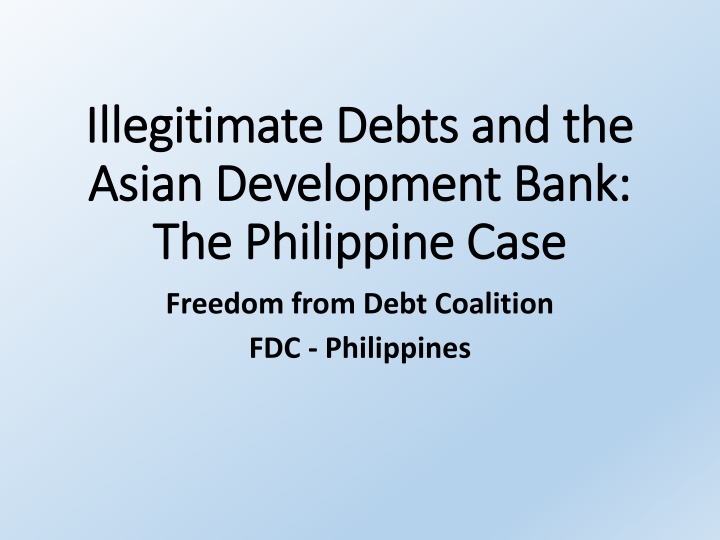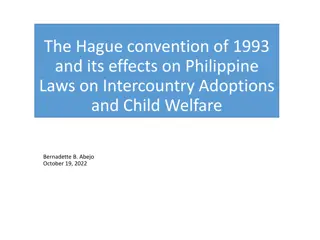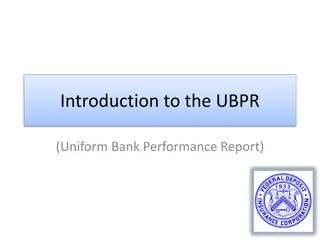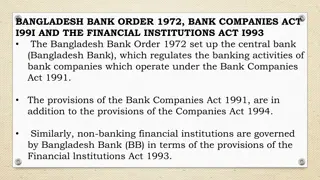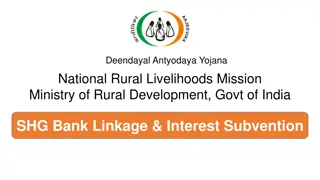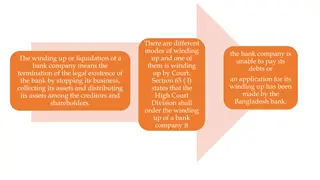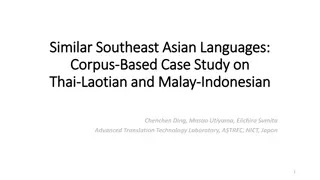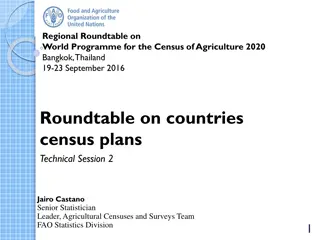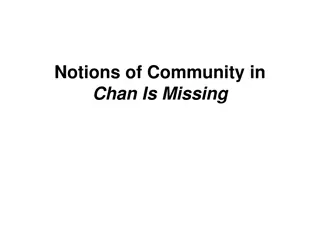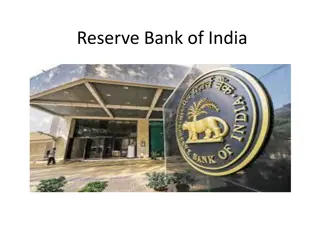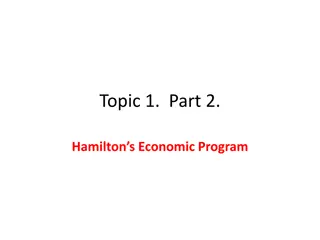Illegitimate Debts and the Asian Development Bank: The Philippine Case Overview
The Philippine government's debt situation is outlined, highlighting the importance of a historical audit to determine the legitimacy of foreign loans. The General Appropriations Act of 2017 calls for a debt audit on specific projects. The audit aims to ascertain the legitimacy of contracted loans and is expected to be completed within the fiscal year.
Download Presentation

Please find below an Image/Link to download the presentation.
The content on the website is provided AS IS for your information and personal use only. It may not be sold, licensed, or shared on other websites without obtaining consent from the author.If you encounter any issues during the download, it is possible that the publisher has removed the file from their server.
You are allowed to download the files provided on this website for personal or commercial use, subject to the condition that they are used lawfully. All files are the property of their respective owners.
The content on the website is provided AS IS for your information and personal use only. It may not be sold, licensed, or shared on other websites without obtaining consent from the author.
E N D
Presentation Transcript
Illegitimate Debts and the Illegitimate Debts and the Asian Development Bank: Asian Development Bank: The Philippine Case The Philippine Case Freedom from Debt Coalition FDC - Philippines
Philippine Debt Situation PhP5.56 trillion (USD116 billion) = Outstanding debt of the national government as of 2017 Domestic debt = PhP4.382 trillion Foreign debt = PhP2.144 trillion (USD44.7 billion) Total government budget for 2017 = PhP3.35 trillion (USD70 billion) Debt Serving = P335 billion (USD70 billion); 10 percent or third highest allocation in the budget
Historical Audit of Illegitimate Debts On Dec. 22, 2016, President Duterte signed the General Appropriations Act (GAA) of 2017 with a special provision calling on Congress oversight committee on overseas development assistance to conduct a debt audit to determine the legitimacy of 20 government- contracted foreign loans. The audit is to be completed within the 2017 fiscal year Earlier, on Dec. 13, 2016, a more far-reaching Senate Resolution (SR) No. 253 was filed jointly by Sen. Risa Hontiveros and Senate President Aquilino Pimentel III directing the appropriate Senate committee to inquire, in aid of legislation, into the foreign loans contracted by the Philippine government within the last 15 years through the conduct of a debt audit.
General Appropriations Act 2017 Amendments to General Provision Vol. 1-B, Page 813, Line no. between lines 43 and 44 Insert a new provision to read as follows and renumber succeeding provisions accordingly: Section 86: Debt Audit. The Congressional Oversight Committee on Overseas Development Assistance (COCODA) is hereby tasked to conduct a debt audit to determine the legitimacy of the following contracted loans: 1. Philippine Rural Development Project 2. Pampanga Development Flood Control 3. Bohol Irrigation Phase II 4. Angat Water Supply Optimization 5. Sixth Road Project 6. Power Sector Development Program 7. Help for Catubig Agricultural Advancement 8. Agrarian Reform Communities Project 9. Global Maritime Safety
10. Small Water Impounding Project 11. Third Elementary Education Project 12. Emergency Network Project 13. Southern Philippines Irrigation Sector Project 14. Calaca I Coal Fired Thermal Power Plant 15. Calaca II Coal-Fired Thermal Power Plant 16. Calaca II Coal-Fired Power Plant Additional Financing 17. Second Agrarian Reform Communities Dev Project 18. Second Agrarian Reform Communities Dev Project 2 19. Irrigation Systems Improvement 20. South Luzon Expressway Construction Project I The said debt audit shall be concluded within the 2017 Fiscal Year.
Seventeenth Congress of the Republic of the Philippines First Regular Session December 13, 2016 SENATE P.S.R. NO. 253 INTRODUCED BY SENS. AQUILINO KOKO PIMENTEL III AND ANA THERESIA HONTIVEROS- BARAQUEL RESOLUTION DIRECTING THE APPROPRIATE SENATE COMMITTEE TO INQUIRE, IN AID OF LEGISLATION, INTO THE FOREIGN LOANS CONRACTED BY THE PHILIPPINE GOVERNMENT WITHIN THE LAST FIFTEEN YEARS THROUGH THE CONDUCT OF A DEBT AUDIT WHEREAS, the Philippines has accumulated an external debt burden whuich now stands at 77 billion US dollars as of June 2016. This is debt for which we are compelled to set aside a substantial portion of our annual budget, pursuant to our Automatic Appropriations Law; WHEREAS, in the 2016 General Appropriations Act, 214.5 Billion Pesos was allotted for debt servicing of foreign liabilities; WHEREAS, out of this 214.5 Billion Pesos, around 3.78 Billion will go to interest and prinicpal payments in connection with a number of questionable loan-funded projects as identified byt he Freedom from Debt Coalition (FDC), including: the Power Sector Development Program, Sixth Road (Tullahan), Pampanga Development Flood Control, Bohol Irrigation II, and Angat Water Supply Optimization;
WHEREAS, it is our duty to verify whether the loan agreements our country has entered into with international financial institutions are compliant with Article VII, Section 20 and Article XII, Section 21 of the Constitution, which requires prior concurrence of the Monetary Board before the President may contract or guarantee foreign loans, and whether these foreign loans are in accordance with the Principles on Promoting Responsible Sovereign Lending and Borrowing by the United Nations Conference on Trade and Development (UNCTAD); WHEREAS, our debt servicing policies have effectively diverted money from health, education, and social services financing; WHEREAS, it is incumbent upon the Senate, in the exercise of its power of the purse, to ensure that public funds are appropriated and used properly; NOW THEREFORE, BE IT RESOLVED, AS IT IS HEREBY RESOLVED TO URGE THE PROPER SENATE COMMITTEE TO INQUIRE, IN AID OF LEGISLATION, INTO LOANS CONTRACTED BY THE PHILIPPINE GOVERNMENT WITH THE END IN VIEW OF CONDUCTING A DEBT AUDIT TO VERIFY WHETHER THERE ARE ONEROUS FOREIGN LOAN CONTRACTS ENTERED INTO BY THE GOVERNMENT AND TO ENACT MEASURES TO ENSURE THE PRUDENT AND PROPER USE OF FOREIGN LOANS, IN ORDER THAT THESE LOANS MAY BENEFIT INSTEAD OF BURDEN THE FILIPINO PEOPLE. Adopted, AQUILINO KOKO PIMENTEL ANA THERESIA HONTIVEROS-BARAQUEL
These two initiatives are historically significant as previous attempts by civil society groups, notably the Freedom from Debt Coalition (FDC), to compel the government to critically examine foreign-funded projects have all come to naught. In 2008, then President Gloria Arroyo vetoed a GAA special provision that would have suspended the debt service of 13 foreign loans with interest payments amounting to P25.9 billion that the FDC called fraudulent, wasteful, and/or useless. The 2017 debt audit provision covers 20 loans from the Asian Development Bank, IBRD-World Bank, Japan International Cooperation Agency, Japan Bank for International Cooperation, Japan Eximbank, Opec Fund for International Development, French Protocol, and Raiffeisen Zentralbank Austria. But as SR 253 implies, these are but the tip of the iceberg with 481 outstanding foreign loans up for scrutiny under the Hontiveros-Pimentel initiative.
What are illegitimate debts? Violates common principles of human rights and sustainable human development, justice and fairness, accountability and responsibility, sovereignty of peoples and nations, and democratic rights. Violates UNCTAD (United Nations Conference on Trade and Development) Principles on Promoting Responsible Sovereign Lending and Borrowing (Adopted on 10 January 2012) as well as UN General Assembly resolutions Eurodad, however, critiques the UNCTAD principles as they only cover government debts and ignore private debts
Declaring a debt as illegitimate violation of procedures mandated by law such as bribery, fraud, coercion, or misrepresentation; onerous provisions such as public guarantees of private profits; negative impact on the environment, communities and people s wellbeing, and on basic social services, human welfare, and safety; waste of funds through corruption, mismanagement, and project failures; conversion of private loans into public debts due to sovereign guarantees; subjecting the economy to shocks, unreasonable creditor demands, and financial market instabilities; and imposing conditionalities that violate national sovereignty and democratic principles.
What a debt audit looks at the context and circumstances surrounding the transactions; the process of finalizing debt contracts; the content of the contracts; the purpose of the debts; how the funds were actually used; the impacts of debt-funded policies and projects; and, the impacts of the conditionalities accompanying the debts and the debt contracts.
Ultimate Target: Automatic Appropriation Law The projected audit of illegitimate loans is a preliminary but significant step toward the cancellation of all fraudulent loans and the repeal of the law on automatic appropriations for debt servicing imposed by the dictator Ferdinand Marcos in 1977 through Presidential Decree No. 1177 and reiterated by then President Corazon Aquino through the 1987 Revised Administrative Code. As it stands, debt servicing is prioritized over any other government expenditure. The Philippines is reportedly the only country in the world with such an onerous law.
ADB projects among the 20 debts 1. Power Sector Development Program (PSDP) ADB, JBIC/JEXIM characterized bail-out of NPC debts to IPPs, violation of labor rights, resulted in higher electricity rates, increase in gov t debts due to absorption of NPC liabilities; ADB loan US450 million (56%), JBIC US$350 million 1. Sixth Road Project ADB, Japan Eximbank, and OPEC Fund for Int l Dev t co-financiers marked by delays (47 mos), misuse of equipment, bloated budget, blacklisted contractor. ADB loan: US$34 million (23%) of total loan of US148 million
3. Agrarian Reform Communities Project ADB sole financing (US$72.60 million); problem lack of thorough study, delays in implementation (8 years), unmet targets, no protection for beneficiaries from unjust practices of companies, no environmental and health protection 4. Southern Philippines Irrigation Sector Project (SPISP) ADB sole financier US$60 million) unfinished project, transfer of management cost to farmers, lack of social preparation, insufficient consultation with farmers, resulted in fluctuating farm productivity 5. Irrigation Systems Improvement (PH-1049) ADB sole financier (US$20 million) wrong assumptions and faulty project design leading to failure to meet project objectives,
Recent Developments The Senate Committee on Economic Affairs, chaired by Senator Sherwin Gatchalian, has held two public hearings on February 9 and February 27, 2017 on Senate Resolution No. 253 directing the appropriate senate committee to inquire into foreign loans contracted by the Phil. Government within the last fifteen years On February 20, 2017, the Commission on Audit (COA) met with FDC on the mechanisms and parameters of a debt audit. On the other hand the Congressional Oversight Committee on Overseas Development Assistance (COCODA) tasked to look into the 20 illegitimate debts has yet to be convened.
